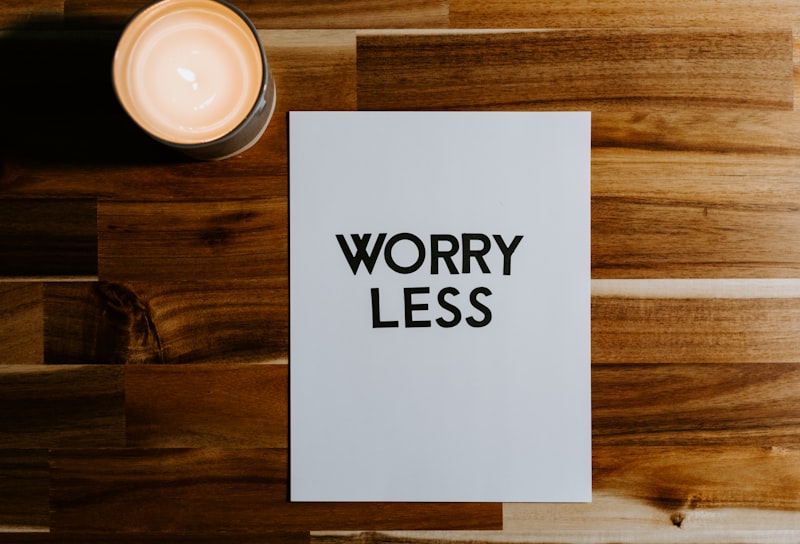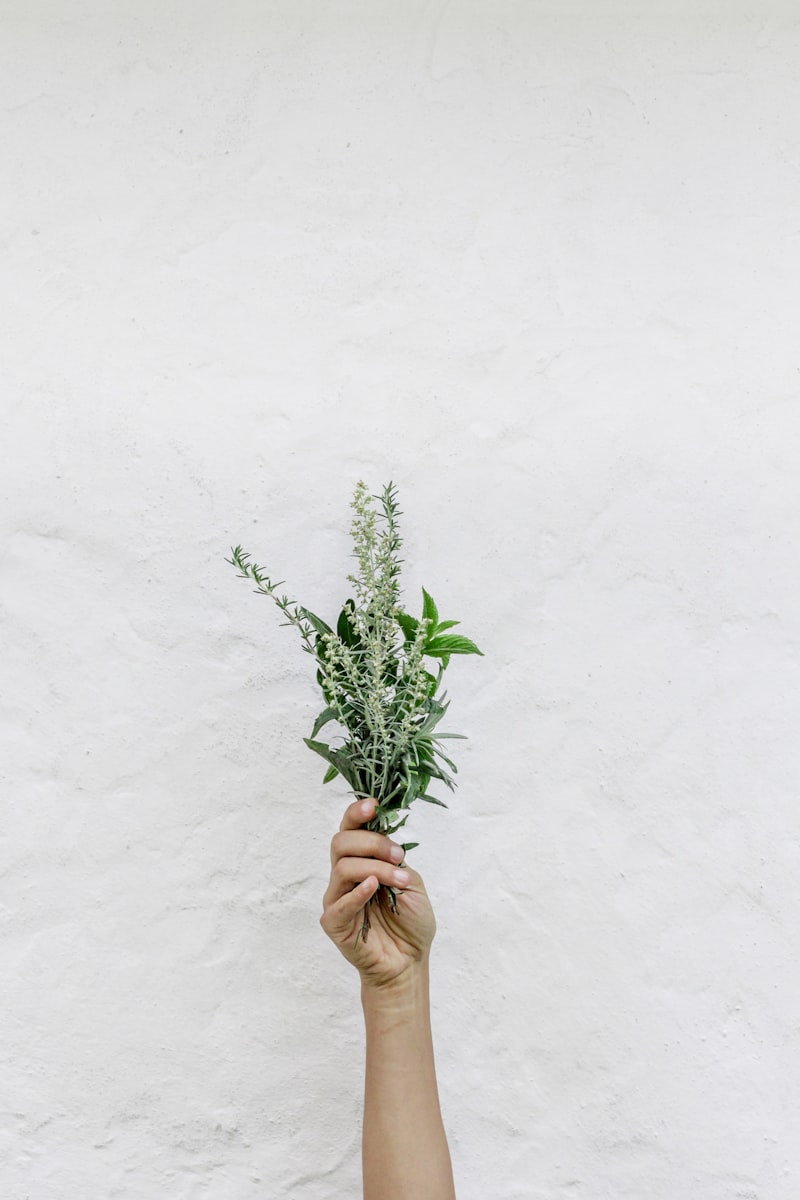One powerful approach is mindfulness meditation. It’s not about clearing your mind completely but rather about acknowledging and observing your thoughts without judgment. By practicing mindfulness regularly, you can train your mind to stay present and reduce the grip that anxious thoughts may have on you.
Exercise is another game-changer. When you’re active, your body releases endorphins — those feel-good chemicals that can lift your mood and reduce stress. Whether it’s a brisk walk in the park or a yoga session at home, finding a physical activity you enjoy can significantly help in managing anxiety.

Speaking of yoga, this ancient practice combines physical postures, breathing exercises, and meditation. It’s like giving your mind and body a refreshing tune-up. Yoga not only enhances flexibility and strength but also promotes relaxation and reduces cortisol levels, the hormone associated with stress.
Have you ever tried herbal remedies? Many herbs have calming properties that can be as effective as prescription medications for some people. For example, chamomile tea is known for its soothing effects, while lavender oil can be used in aromatherapy to induce relaxation.

Don’t underestimate the power of a good night’s sleep. Sleep and anxiety often go hand in hand — a lack of sleep can exacerbate anxious feelings, while anxiety can make it difficult to sleep. Establishing a bedtime routine and creating a restful environment can help improve your sleep quality and, consequently, your anxiety levels.
Lastly, consider your diet. What you eat can impact your mental health. Avoiding excessive caffeine and sugar and incorporating more whole foods rich in nutrients can support your overall well-being and help keep anxiety at bay.
Harnessing Nature: Effective Herbal Remedies for Anxiety Relief
In today’s fast-paced world, anxiety has become a common challenge for many. While modern medicine offers solutions, some individuals seek natural alternatives to manage their anxiety. Harnessing the power of nature, herbal remedies have emerged as effective options for anxiety relief.
One of the most widely recognized herbs for calming anxiety is chamomile. Known for its soothing properties, chamomile tea is a popular choice to unwind after a stressful day. Its gentle aroma and mild sedative effects can promote relaxation and ease nervous tension.
Another potent herb is lavender, celebrated not only for its delightful fragrance but also for its calming effects on the mind and body. Whether used in essential oil form for aromatherapy or brewed into a tea, lavender can help alleviate anxiety symptoms and improve sleep quality.
Passionflower is another herbal remedy gaining attention for its anxiety-relieving benefits. Traditionally used to treat insomnia and nervous disorders, passionflower works by boosting levels of gamma-aminobutyric acid (GABA) in the brain, which helps to calm the nervous system.
For those seeking a versatile herb, valerian root offers both anxiety relief and aid with sleep disturbances. Valerian acts similarly to prescription sedatives by increasing GABA levels, promoting a sense of tranquility and reducing restlessness.
The effectiveness of these herbal remedies lies in their natural compounds, which interact with neurotransmitters in the brain to induce relaxation without the harsh side effects of pharmaceuticals. However, it’s essential to consult with a healthcare provider before incorporating herbs into your wellness routine, especially if you’re taking medications or have existing health conditions.
By harnessing nature’s gifts, these herbal remedies provide a holistic approach to managing anxiety, offering relief that is gentle yet profound. Whether enjoyed as a calming tea or through aromatherapy, these natural solutions can help individuals find peace amidst life’s stresses.
This article provides an overview of effective herbal remedies for anxiety relief, emphasizing their natural benefits and gentle approach to managing stress and anxiety.
Holistic Healing: Natural Approaches to Calming Anxiety
One effective approach is mindfulness meditation, a practice rooted in ancient traditions that encourages being present in the moment without judgment. By cultivating mindfulness, individuals can observe their thoughts and feelings without becoming overwhelmed by them, fostering a sense of calm and inner peace.
Another integral part of holistic healing for anxiety is aromatherapy, which harnesses the therapeutic properties of essential oils. Scents like lavender, chamomile, and bergamot are renowned for their calming effects on the nervous system, helping to reduce stress levels and promote relaxation.
In addition to these practices, yoga and tai chi are physical exercises that blend movement, breath, and meditation. They enhance flexibility, strength, and mental clarity, offering a holistic approach to managing anxiety by reducing muscle tension and promoting relaxation responses in the body.
Nutritional therapy also plays a crucial role in holistic healing for anxiety. Consuming a balanced diet rich in whole foods, omega-3 fatty acids, and magnesium can support neurotransmitter function and mood stabilization, positively impacting anxiety levels.
Furthermore, holistic practitioners often recommend herbal remedies such as passionflower, valerian root, and lemon balm, known for their calming properties and ability to soothe nervous tension.
By embracing holistic healing approaches, individuals can address anxiety from multiple angles, nurturing their overall health and well-being naturally. These methods empower individuals to take an active role in their healing journey, fostering resilience and promoting long-term emotional balance.
Nature’s Soothing Touch: How Outdoor Activities Ease Anxiety
Imagine a world where stress melts away like morning mist under the warm sun. Outdoor activities offer just that—a natural remedy for our modern-day anxieties. Whether it’s a brisk hike through towering forests or a leisurely stroll along a sun-dappled beach, nature has a unique way of calming our restless minds.

One of the most remarkable aspects of outdoor activities is their ability to engage all our senses. The gentle rustling of leaves in the wind, the earthy scent after rain, the vibrant colors of a sunset—these sensory experiences anchor us in the present moment, away from the worries that often plague our thoughts.
Have you ever felt your shoulders relax as you step into a quiet woodland, away from the hustle and bustle of daily life? Nature’s rhythm, unhurried and constant, offers a stark contrast to the fast-paced digital world. It invites us to slow down, breathe deeply, and reconnect with our inner selves.
Moreover, outdoor activities stimulate physical movement, releasing endorphins that naturally enhance our mood. Whether it’s the exhilaration of reaching a summit or the simple joy of feeling the sand between your toes, these experiences elevate our spirits and reduce the physiological markers of stress.


Studies consistently show that spending time outdoors lowers cortisol levels—the hormone responsible for stress—while boosting our immune system and enhancing overall well-being. Nature’s tranquility isn’t just a temporary escape; it fosters resilience against future stressors, helping us face challenges with a clearer mind and a calmer heart.
In essence, nature’s soothing touch is a powerful antidote to the anxieties of modern life. It beckons us to unplug, unwind, and embrace the beauty that surrounds us. Whether you find solace in the whisper of waves or the whisper of leaves, the great outdoors offers a sanctuary where peace and perspective flourish naturally.
Mindful Meditation: The Natural Way to Manage Anxiety
Imagine your mind as a clear lake. In today’s hectic world, it’s often stirred by waves of worries and pressures. Mindful meditation teaches us to observe these waves without being swept away by them. By cultivating this awareness, practitioners can better understand their emotions and reactions, leading to more thoughtful responses to stressful situations.
Through regular practice, individuals gradually develop a mental resilience akin to strengthening a muscle. Just as physical exercise improves stamina, mindful meditation enhances emotional endurance. It empowers individuals to face challenges with a composed demeanor, reducing the grip anxiety can have on daily life.
Moreover, studies highlight its physiological benefits. Practitioners often experience reduced levels of cortisol, the stress hormone, which contributes to a sense of relaxation and inner peace. This natural process doesn’t require any special equipment or settings—just a commitment to dedicating a few minutes each day to self-care.
In essence, mindful meditation isn’t about eliminating stress but transforming our relationship with it. It encourages us to embrace the present, viewing it as an opportunity for growth rather than a source of apprehension. By harnessing the power of mindfulness, individuals can embark on a journey towards a calmer, more balanced life.
Frequently Asked Questions
What lifestyle changes can help manage anxiety naturally?
Discover effective lifestyle changes to naturally manage anxiety with our concise FAQ. Learn actionable strategies for reducing anxiety through diet, exercise, mindfulness, and more.
What are the most effective natural remedies for anxiety?
Discover effective natural remedies for anxiety with our concise guide. Learn about proven methods like mindfulness meditation, herbal supplements such as chamomile and valerian root, and lifestyle changes including regular exercise and sufficient sleep.
Are there specific herbs known to alleviate anxiety symptoms?
Learn about herbs that can help relieve anxiety symptoms, including their effectiveness, common types, and potential side effects.
How can diet and nutrition help in reducing anxiety?
Discover how optimizing your diet and nutrition can effectively reduce anxiety levels. Learn about specific nutrients and dietary adjustments that promote mental well-being and support a calmer, more balanced state of mind.
Can mindfulness and meditation techniques reduce anxiety?
Learn how mindfulness and meditation techniques can effectively reduce anxiety by promoting relaxation, improving self-awareness, and helping to manage stressors. Discover how these practices can lead to a calmer mind and enhanced emotional well-being.


